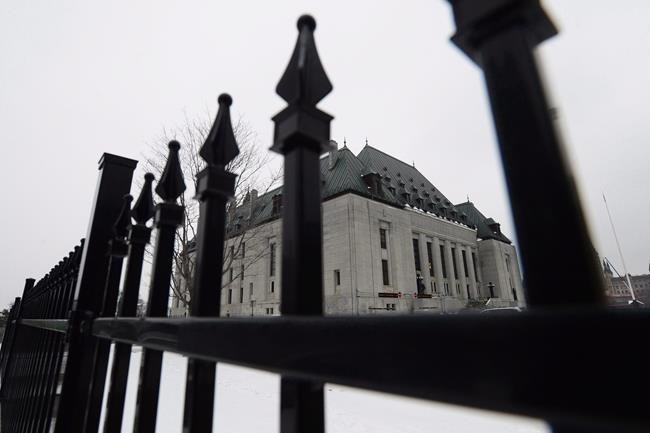Sharing a computer with someone does not mean giving up privacy rights over the material stored on the machine, the Supreme Court of Canada has ruled.
In a 9-0 decision Thursday, the high court restored the acquittal of Thomas Reeves of Sudbury, Ont., on child-pornography charges — even though his common-law spouse had consented to police seizure of a jointly used computer from their home.
In October 2012, police arrived at the home without a warrant after Reeves' spouse reported finding what she believed to be child pornography on the computer.
The ruling says although the couple shared the computer, Reeves had a reasonable expectation of privacy concerning its contents.
Section 8 of the Charter of Rights and Freedoms protects Canadians against unreasonable search and seizure, including in cases where police have found some evidence of criminal activity.
The court found the warrantless seizure of the computer and subsequent search were unreasonable, meaning the child-pornography evidence should be disallowed.
Although the decision was unanimous, two of the nine judges provided their own rationales.
The majority reasons by Justice Andromache Karakatsanis stress that the case affects the privacy rights of all Canadians who share computers with others.
"Shared control does not mean no control," she wrote. "We are not required to accept that our friends and family can unilaterally authorize police to take things that we share. The decision to share with others does not come at such a high price in a free and democratic society."
Deciding otherwise could disproportionately affect the privacy rights of low-income people, who might be more likely to share a home computer, she added.
Child-pornography offences are "serious and insidious" and there is a strong public interest in investigating and prosecuting them, the decision said. However, in applying charter rights, the question is not whether a person broke the law but whether the police exceeded the limits of the state's authority.
— Jim Bronskill, The Canadian Press



